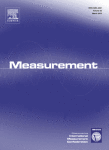 A computer scientist in Malaysia has lost two papers for faked peer reviews, and another for duplication. A fourth paper on which he is a co-author appears to have simply disappeared.
A computer scientist in Malaysia has lost two papers for faked peer reviews, and another for duplication. A fourth paper on which he is a co-author appears to have simply disappeared.
One retraction lays the blame for the fake reviewer on corresponding author Shahaboddin Shamshirband at the University of Malaya in Kuala Lumpur, Malaysia. According to the journal, Shamshirband — who has co-authored more than 200 papers and book chapters, despite receiving his PhD in 2014, according to his biography on Vitae — supplied a fake email for the reviewer during the submission process.
Here’s the retraction notice for that paper, issued by the journal Measurement:
This article has been retracted at the request of the Editor-in-Chief.
After a thorough investigation, the Editor has concluded that the acceptance of this article was based upon the positive advice of at least one faked reviewer report. The report was submitted from a fictitious email account which was provided to the journal as a suggested reviewer by the corresponding author during the submission of the article.
This manipulation of the peer-review process represents a clear violation of the fundamentals of peer review, our publishing policies, and publishing ethics standards. Apologies are offered to the readers of the journal that this deception was not detected during the submission process.
“Stiffness performance of polyethylene terephthalate modified asphalt mixtures estimation using support vector machine-firefly algorithm” has been cited seven times since it was published in March 2015, according to Clarivate Analytics’ Web of Science, formerly part of Thomson Reuters.
Similar text is used in the notice for “Investigation of plasmonic studies on morphology of deposited silver thin films having different thicknesses by soft computing methodologies—A comparative study,” on which Shamshirband is listed as the second to last author. That paper — cited once since it was published in 2014 — has also been retracted by the editor of the journal (Physica E) as a result of faked reviews.
We contacted first author of the Physica E paper, Dalibor Petković at the University of Niš in Serbia, who told us the reviewers were PhD students with non-institutional email addresses.
Now at this time some of them removed email addresses and now it seems some of the reviewers are not exist according to the lost email addresses. I do not agree with the retraction since it is not our fault. Editors should check whom they invited to review. Why editors sent invitation to nonacademic email addresses?
He added:
Recently I also received number of invitation for review on the my non-academical address. What will happen if I remove my nonacademic email address? It will be like fake review.
Here’s another retraction for a paper co-authored by Shamshirband (he’s one of two corresponding authors), this time as a result of duplication:
This article has been retracted at the request of the Editor-in-Chief.
The article duplicates significant parts of a paper that had already appeared in App. Therm. Eng., 96 (2015) 311–319 (http://dx.doi.org/10.1016/j.applthermaleng.2015.11.081), entitled “Using ANFIS for selection of more relevant parameters to predict dew point temperature” and various other papers. One of the conditions of submission of a paper for publication is that authors declare explicitly that the paper is not under consideration for publication elsewhere. Re-use of any data should be appropriately cited. As such this article represents an abuse of the scientific publishing system. The scientific community takes a very strong view on this matter and apologies are offered to readers of the journal that this was not detected during the submission process.
“Application of adaptive neuro-fuzzy technique to determine the most relevant variables for daily soil temperature prediction at different depths” was published in October 2016 by Catena.
We’ve also found something that may or may not be another retraction for a paper Shamshirband co-authored. This entry on PubPeer describes a paper in the International Journal of Intelligent Systems Technologies and Applications which disappeared after it was published in August 2016. We’ve contacted the editor of the journal, Kohei Arai, to learn more about its status.
Shamshirband is also a co-author on a 2016 paper called “Copy-move forgery detection: Survey, challenges, and future directions,” about detecting image manipulations.
Last year, Jeffrey Beall wrote about Shamshirband and Petković on his now-defunct blog, presenting examples of text from different articles the pair co-authored that he alleged had been recycled:
Much of the text matches from article to article, but with simultaneous submission, plagiarism-checking software can’t always catch the duplication. Or are the publishers even checking?
Petković told us:
As you can see these accusations are for ”salami-sliced” papers as they called it. This means we have one 4-year project and we published several papers for the project and these papers belongs to the same topic since the project has defined goals and we must follow it.
Like Retraction Watch? Consider making a tax-deductible contribution to support our growth. You can also follow us on Twitter, like us on Facebook, add us to your RSS reader, sign up on our homepage for an email every time there’s a new post, or subscribe to our daily digest. Click here to review our Comments Policy. For a sneak peek at what we’re working on, click here.
This entry on PubPeer describes a paper in the International Journal of Intelligent Systems Technologies and Applications which disappeared after it was published in August 2016
The publisher in question (MECS Press) was on Beall’s list.
!!!!!